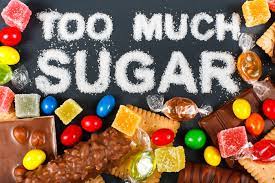HRV: What It Really Means for Women over 50
- Janice Tracey
- Oct 3, 2025
- 3 min read

It sounds sciency and tecky, but it’s actually a really useful window into your health — especially for women over 50.
If you’ve scrolled Instagram or picked up a fitness tracker lately, you’ve probably seen “HRV” everywhere. I have started checking and monitoring my HRV on my fitbit. I've studied it, and I still get a bit confused and also still get pulled into the hype and the marketing clickbait posts.
If I'm interested but confused, I bet you are. So I thought I'd do a bit of research as a reminder for myself and try to simplify it a bit for you.
💓 What is HRV?
HRV stands for Heart Rate Variability — the tiny variation in the time gap between each heartbeat.If your heart beats 60 times a minute, it doesn’t tick perfectly every second. Sometimes it’s 0.9 seconds between beats, sometimes 1.1. That “wobble” is HRV.
Think of it as your nervous system flexibility score. A higher HRV means your body can shift easily between “go-go-go” (stress mode) and “rest-digest” (recovery mode).
🌿 Why does HRV matter in midlife?
For women over 50, HRV can tell us a lot about:
Stress resilience – Can you adapt to daily ups and downs?
Recovery – After exercise, poor sleep, or illness.
Balance – Menopause and stress often push us toward “fight or flight.” Higher HRV shows you can still switch into calm, healing mode.
Heart & metabolic health – Persistently low HRV is linked to higher risk of heart disease, diabetes, and poor sleep.
In simple terms: higher HRV = a more adaptable, resilient body and mind.
📊 What’s a “healthy” HRV after 50?
This is where it gets confusing online. HRV is hugely individual and naturally drops with age. This is the bit that got me.
20–40 ms: common for women in their 50s–60s
40–60 ms: often seen in very fit, well-rested women
10–20 ms: not necessarily “bad,” but may suggest higher stress load or poor recovery
👉 A 25-year-old athlete might have 80–100 ms. That doesn’t make 30 ms at 55 years old “unhealthy.” What matters most is your trend over time, not comparing with others.
This is the bit that got me. I'm in my 60's (OMG), fit, but not always well rested. A bit of an all or nothing approach. My HRV was hovering around 46 and thought I was a great girl, but then it dropped to 35 and I thought I wasn't doing enough exercise but it appears I wasn't resting enough. Seems to me I need a bit more flexibility and a bit more balance.
📈 How to improve HRV naturally
Because this is on my radar, and big brother is everywhere, I seem to be getting hit with instagram and facebook ads promoting HRV gadgets ranging from £600 down to £100, and I have to say I clicked in and was tempted. Most of the gadgets promote the rest and digest element of improving your HRV, and once I realised that I put the credit card away and decided to prioritise that area of my life a bit more.
The conclusion I've come to: you don’t need fancy gadgets to boost HRV. Small daily habits make the biggest difference. These are the tips I'll be sharing with my clients. Some of these I do, some I used to do and have started doing more, some I just don't know (cool showers, never say never).
Breathe through your nose – Slow, deep nasal breathing helps activate your “rest-digest” system.
Prioritise sleep – Same bedtime and wake-up time, cool dark room, no late-night scrolling.
Move your body daily – Mix strength training, walks, yoga; don’t overdo high-intensity workouts.
Cool finish showers – 20–30 seconds of cool water at the end can nudge HRV upward.
Balance blood sugar – Pair protein, healthy fats, and fibre to avoid crashes.
Cut back on alcohol – Even a glass or two can lower HRV overnight.
Practice relaxation – Gratitude, journaling, nature walks, or meditation all support HRV.
✅ Takeaway
HRV isn’t about chasing a “perfect” number. It’s about building resilience, balance, and recovery — the very things that help us thrive after 50. Focus on the daily habits, and your HRV (and overall health) will naturally improve.
If you do want to track, do your research, I use a Fitbit but Apple watch is good do. I may put an Oura ring on my Christmas list though. PS these aren't recommendations, just my personal musings.











